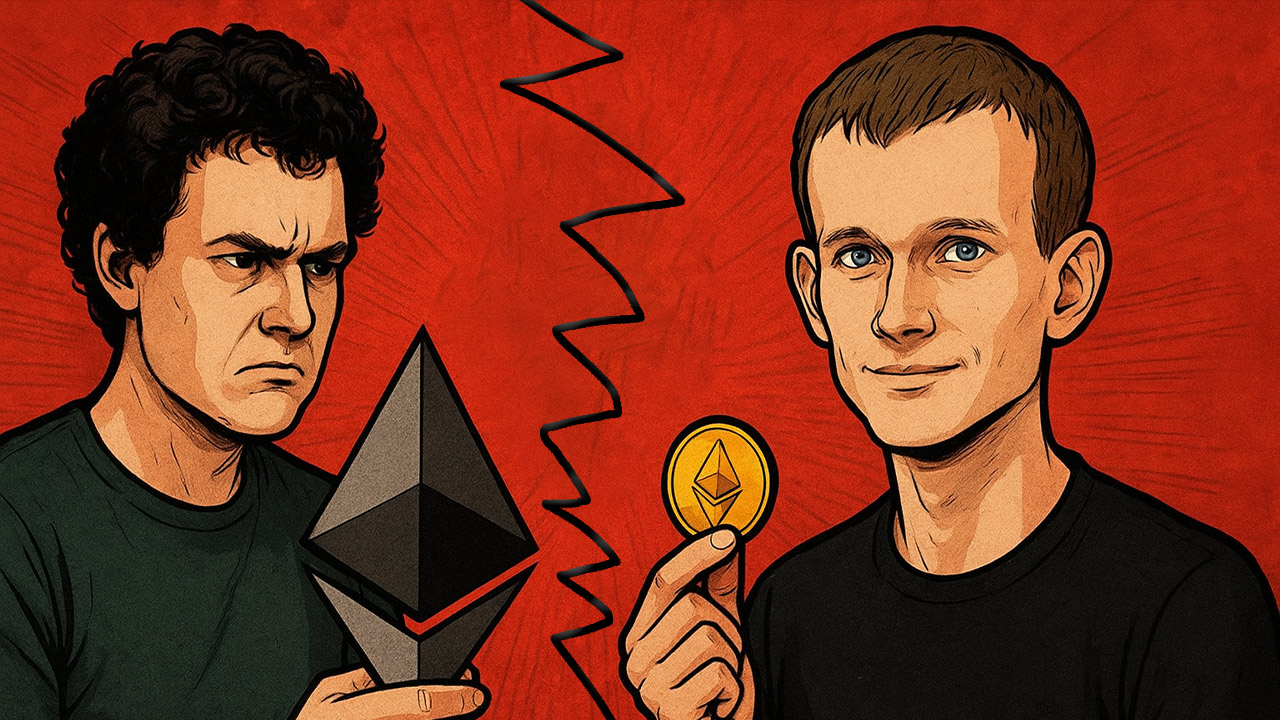Ethereum is facing controversy after one of its key developers, Péter Szilágyi, claimed that Vitalik Buterin and a small group of insiders have too much control over how the network runs.
In a detailed letter to Ethereum Foundation, Szilágyi said Ethereum has evolved into a network controlled by a small group of people and venture capital firms. He claimed that “most successful projects are directly backed by the same 5-10 people, behind who you can find the same 1-3 VCs,” forming what he called a “one happy friend circle of Vitalik.”
Szilágyi, who leads the Geth client team, said he wrote the letter after feeling growing disillusionment with the Foundation. According to him, Vitalik’s influence determines which projects succeed or fail. “His attention, direction of researcher brain-power, donations and investments absolutely define which projects succeed,” he stated. Moreover, he argued that the Foundation failed to reward long-term contributors fairly, creating incentives that allow power consolidation and protocol capture.
Power Concentration and Internal Frustrations
Szilágyi criticized the Foundation for promoting “perceived leadership role” while maintaining control behind closed doors. He described his position as “a useful fool for the Foundation in a lose-lose situation.” He also highlighted long-standing financial inequality, noting that his total compensation during Ethereum’s first six years was only $625,000. “The Foundation took away life changing money from every single one of their employees over the past decade,” he added.
Additionally, Szilágyi said this underpayment forced many early contributors to seek financial opportunities elsewhere. This, he warned, created conditions for “perverse incentives, conflicts of interests, and eventual protocol capture.” He cited recent cases of Ethereum researchers taking advisory roles with private projects as examples of systemic risks.
According to Szilágyi, Ethereum now revolves around a “ruling elite” of influential figures and investors. “All the most successful projects are directly backed by the same 5–10 people,” he said, suggesting that personal ties to Vitalik determine ecosystem success. He concluded that Ethereum “set out to create a world of equal opportunity,” but instead became a network where influence drives outcomes.
Vitalik Buterin Praises Polygon
In a response though indirectly, Ethereum co-founder praised Polygon and its co-founder Sandeep Nailwal for their strong contributions to the Ethereum ecosystem. He highlighted Polygon’s early push into ZK-EVM development and Jordi Baylina’s team for advancing ZK technology.
Buterin also commended the creation of AggLayer, calling it a major step for Ethereum scalability. Beyond technology, he applauded Sandeep’s work with CryptoRelief and his decision to return $190 million in SHIB donations, which later funded the Balvi open-source pandemic project. Buterin added that he hopes Polygon adopts mature ZK solutions to bring “full security guarantees” to its PoS chain.
Foundation Restructures Test Networks
Besides internal criticism, the Ethereum Foundation is preparing major changes to its testing infrastructure. The organization has begun winding down Holešky, a testnet launched in 2023 to support large-scale validator and upgrade testing.
According to a post on X, Holešky will undergo planned node shutdowns two weeks after the Fusaka upgrade finalizes. Operators must migrate to the new Hoodi and Sepolia networks, now the main testnets for staking and application development.
Holešky played a role in testing major Ethereum upgrades like Dencun, Pectra, and Fusaka. The Fusaka update added PeerDAS, a feature that helps validators work faster while using less bandwidth. Now that Holešky has completed its job, it’s being shut down and will no longer get technical support.
According to CoinMarketCap, Ethereum is currently priced at $3,850.09, down about 4.86% in the past 24 hours, with a trading volume of $37.9 billion.
Szilágyi’s comments and the recent network changes show that Ethereum is still trying to stay true to its decentralized roots while facing growing control from a few powerful players and technical hurdles along the way.
Also Read: Solana Co-Founder Is Building Perpetual DEX “Percolator”











